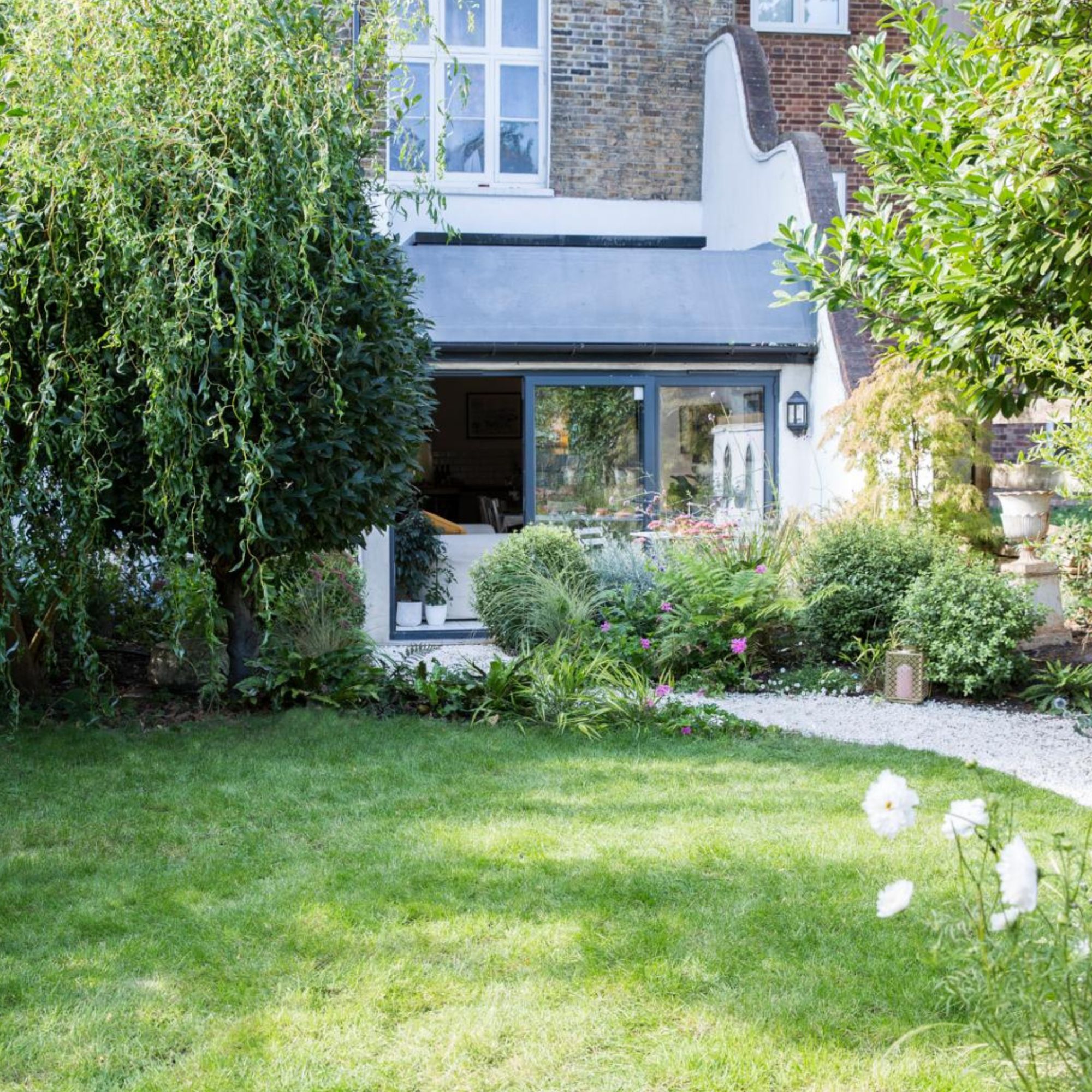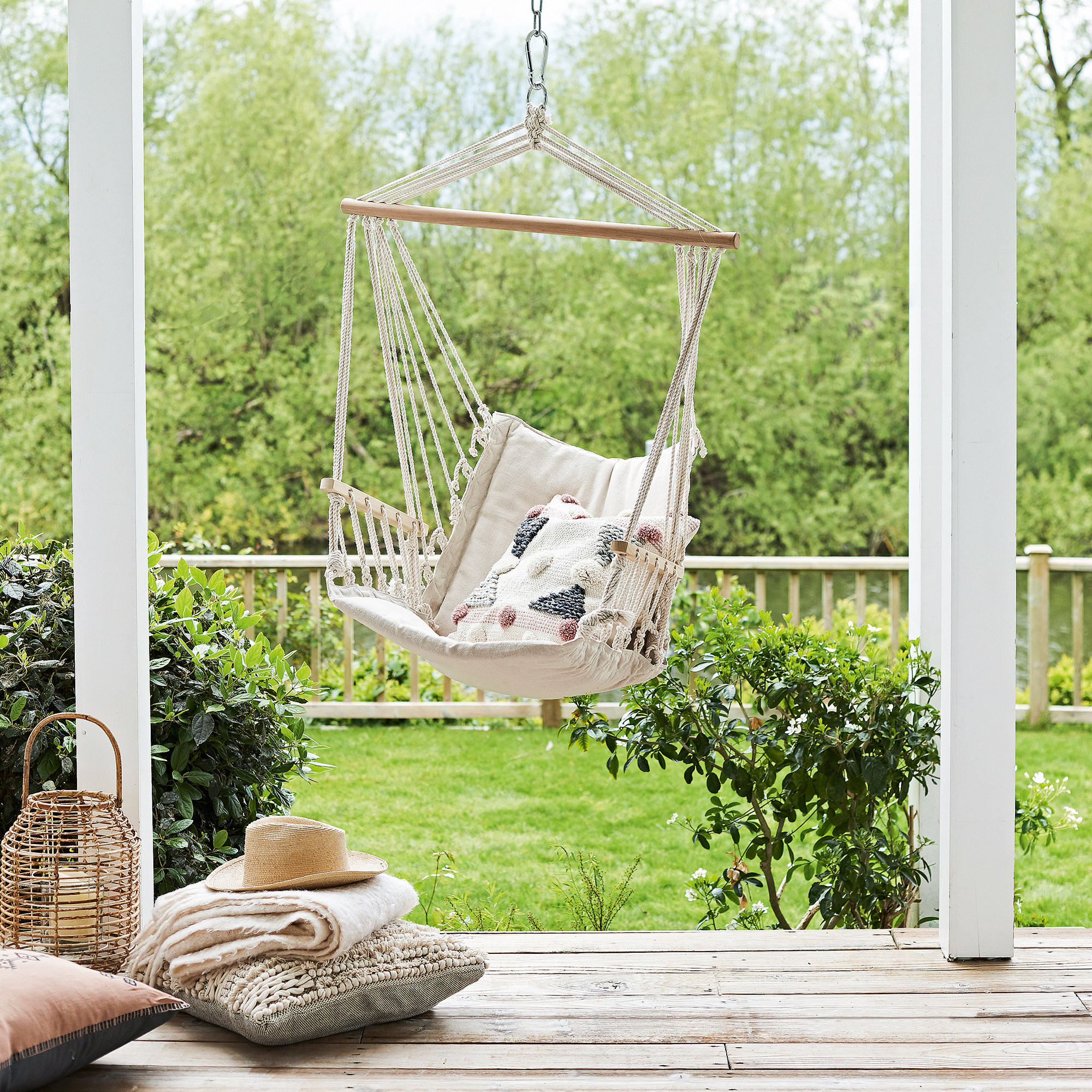
If you’re looking out of your window and wondering how you can improve the health and appearance of your lawn, you might ask yourself: should I level my lawn?
When you follow the best lawn care tips and keep up with your mowing calendar, it’s easy to assume that you’ll be rewarded with a luscious, thick, green lawn that will make your neighbours jealous. But lawns are a little more complicated than that, and the slightest lump or bump can make a big difference.
So, while you might already know how to level a lawn, it’s important to understand why you should level a lawn. And with the help of garden experts, we’ve put together 5 reasons why levelling your lawn may be the best solution to your lawn woes.
Signs you should level your lawn
‘Keeping up with your lawn care is absolutely key, and an important part of this is levelling your lawn, explains John Marshall, Landscaping expert at Wenningdale Escapes. ‘Not only will it help keep your lawn healthy for longer, but it will also look and feel more appealing.’ But if you need some more convincing, these are the 5 signs you may need to level your lawn.

1. You have drainage issues
If you have compacted soil or surface water, your lawn will suffer. Prolonged waterlogging will essentially drown the roots of your grass, killing it and leaving a muddy mess behind. And while there are so many ways to improve lawn drainage, levelling your lawn is a quick and easy solution.
John Clifford, garden expert at Gardenstone, explains, ‘If your lawn is level, then it prevents water from pooling, promoting better drainage. This will in turn prevent waterlogging, which will also prevent your grass and plants from dying.’
After all, a lumpy and bumpy lawn offers even more areas for surface water to sit and pool. By levelling your lawn and removing these areas, you’ll create a flat surface that will remain happy and healthy across every inch.

2. It’s hard to mow and maintain
The best lawnmower can do a lot of things, but it can’t magically turn your sloping lawn into a perfectly flat paradise. And if you find that the cut of your lawn looks uneven after a haircut, there’s a high chance that your lawn isn’t as level as you think.
Yes, an uneven lawn can result in long patches on one end of the garden and short backs and sides on the other end - and this will definitely affect the health of your grass and how long it takes you to mow, too.
To combat this problem, it’s worth levelling your lawn. This will make mowing a breeze and ensure an even healthier lawn.
Jamie Shipley, Gardening Expert and Managing Director of Hedges Direct explains, 'A level lawn ensures that nutrients, water and sunlight are distributed evenly across your garden area. This promotes healthier grass growth and minimises the risk of patchy areas or sparse growth.'

3. Your family keeps tripping over
Always battling tears from young kids who seem to constantly fall over in the garden? While every kid has their clumsy moments, constant trips and falls may also be a sign that you need to level your lawn.
Instead of tripping over their own feet or their untied shoelaces, they may be falling over the concealed mounds and low spots in your lawn that serve as dangerous trip hazards.
John Marshall says, ‘From a safety perspective, a level lawn often helps to avoid any bumps, meaning there is less chance of accidents.’
This is also helpful for those with elderly relatives.
4. You want to lay decking or a patio
If you want to use some of your lawn to bring your dream patio or decking ideas to life, you’ll be happy to know that it’s pretty easy to lay decking or build a patio from scratch.
However, you need a completely flat surface to do this - which means you’ll have to level your grass beforehand.
If you don’t level your lawn before laying this decking or patio slab, you’ll have wonky surfaces that may deteriorate quicker than you’d like as a result of water pooling and poor construction.

5. You don’t like the look of it
Both green-fingered gardeners and novices alike can level a lawn in no time, so we wouldn’t blame you if you wanted to level your lawn purely because you don’t like the look of it.
Having a bumpy, sloping lawn can be extremely ugly and take away from the beauty of your garden borders and herb garden.
Because of this, it may work in your favour to improve the aesthetics of your lawn and simply straighten out the lumps and bumps.
John Clifford says, ‘A level lawn makes your garden look better. It gives it a much neater and tidier appearance. This, in turn, has the potential to increase property value.’
What you’ll need
FAQs
Do I need to level my lawn?
Having a lumpy and bumpy lawn can be frustrating, but it can also seriously damage your lawn. An unlevel lawn can lead to drainage issues, a lack of grass growth, difficulty mowing, and it can be a trip hazard.
If you struggle with any of the above, levelling your lawn is the best and safest option. You don’t need to hire a professional to do it, either.
When should I level my bumpy lawn?
The best time to level a lawn is in the spring when the grass is actively growing and there’s no chance of frost. You should also wait a few days after it’s rained to do this garden job, as you want the lawn to be dry when you do it.
So, should you level your lawn?







